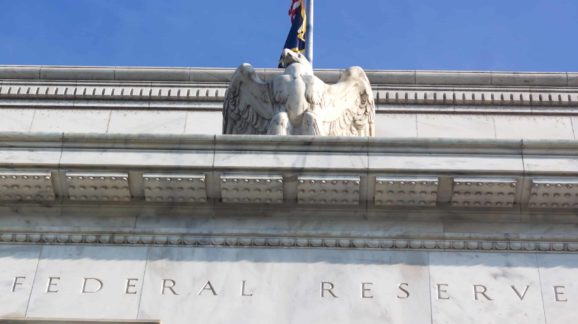Lisa Cook’s First Amendment Problem Should Concern Senators

Photo Credit: Getty
As early as Tuesday, the U.S. Senate could vote on the nomination of Lisa Cook to be a governor of the Federal Reserve, along with other Fed nominees. Those concerned about government-encouraged “debanking” of politically disfavored industries and individuals should view with alarm Cook’s stated support for European-style speech restrictions that would violate the U.S. Constitution’s First Amendment. Moreover, they should take into consideration that Cook participated in a social media campaign to “cancel” a respected University of Chicago economics professor.
Bipartisan concern about whether a Fed nominee would work to financially “cancel” an industry helped lead to the recent bipartisan defeat of another one of President Biden’s Fed nominees. Among many others, my CEI colleague Myron Ebell and I had opposed the nomination of Sarah Bloom Raskin for vice chair for supervision, due to her calls for the use of financial regulation to cut off business with energy companies. Raskin withdrew her nomination in March after Sen. Joe Manchin (D-WV) announced he would join Republicans in opposing her.
Yet, as I have written previously, Cook’s advocacy of canceling and censoring voices with whom she disagrees raises similar concerns about a Fed official possibly using her power to cancel industries and individuals with whom she disagrees. In a Wall Street Journal op-ed entitled “The Fed Doesn’t Need a Censor,” University of Chicago economics professor Harald Uhlig recounts his experience of being the target of an attempted cancellation in which Cook participated.
Just after the “defund the police” movement came into vogue in mid-2020, Uhlig tweeted that this was a bad idea. A string of denunciations came forth on Twitter, as well as allegations that Uhlig had made insensitive comments about Martin Luther King, Jr. in his class years earlier. Uhlig told the Chicago Tribune he did not recall the classroom incident and called King a “global hero.” A University of Chicago investigation found no basis for allegations of mistreatment of students in his class.
Soon after the controversy started, Cook jumped into the fray in a tweet thread. She called for Uhlig’s removal as editor of the Journal of Political Economy, a renowned economics journal, and said she hoped the then-ongoing investigation “results in removing yr [sic] access to students.”
In the tweet thread, Cook also made broader comments advocating limits on the freedom of speech guaranteed by the U.S. Constitution. Embedding a tweet about Germany’s then-Chancellor Angela Merkel praising the penalizing of offensive speech in European nations, Cook wrote: “I agree with Angela Merkel … that free speech has its limits. It should not be used to spread hatred and violate the dignity of other people.”
Cook’s tweets expressing sympathy for European-style limits on speech, in which citizens are fined and even jailed for offensive words (some of which wouldn’t even fit any reasonable definition of “hate speech”) should raise alarms about her serving on the Fed. Although the Fed at first glance may not seem like a government entity with the power of censorship, its power over the economy could affect free expression in a number of ways.
First, as Uhlig notes in his Journal op-ed, having an advocate for censorship as governor might make Fed researchers feel pressure to come to “politically correct” conclusions on important economic matters. Pointing out that Fed researchers “routinely examine labor markets and economic inequality,” he asks, “Will they continue to provide the board with balanced and reasoned assessments? Or will only activist voices be welcome?”
Second, in the past few years, pressure has come from both activist campaigns and government officials to “de-bank” certain unpopular industries. The Electronic Frontier Foundation, a liberal-leaning civil liberties group, raised this alarm about financial threats to free expression:
As we’ve seen with digital booksellers, whistleblower websites, online publishers, and online personal ads, payment providers often cave to pressure—whether formal or informal—to shut down or restrict accounts of those engaged in First Amendment-protected activity. In order to foster a future where digital expression can flourish, we need to ensure that necessary service providers like banks and payment processors don’t turn into the weak link used to cut off unpopular speech.
As the Fed is a bank regulator, words from a Fed governor castigating certain forms of speech could make financial institutions at least think twice about doing business with practitioners of that speech. Senators should keep that in mind in their important vote on Cook’s nomination.
CEI Research Associate Christian Johannessen contributed to this post.